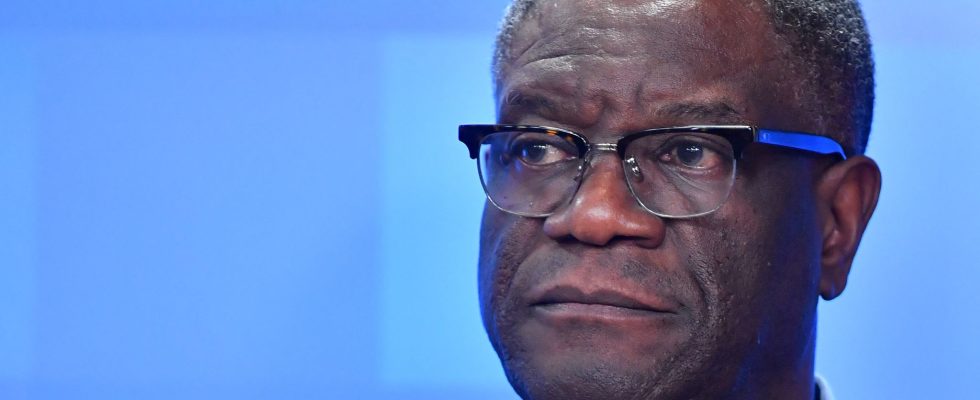Doctor Denis Mukwege, Nobel Peace Prize winner in 2018 for his action in favor of raped women, announced this Monday, October 2 in Kinshasa his candidacy for the presidential election on December 20 in the Democratic Republic of Congo. “The man who repairs women”, a nickname inherited from a documentary dedicated to him, joins an already long list of candidates who intend to confront the outgoing head of state, Félix Tshisekedi, in power since January 2019 and candidate upon his re-election.
“I agree to be your candidate for the presidency of the Republic,” launched the famous 68-year-old gynecologist, in front of hundreds of enthusiastic people gathered in a conference room in Kinshasa. “Our country is doing very badly,” he said in his speech, using very harsh words to describe “the crisis” in the DRC, in terms of security, politics and human rights, with recent arrests. opponents and journalists.
For years, in the DRC as well as during his travels abroad, Denis Mukwege has deplored impunity, called for an international tribunal and pleaded for “transitional justice” to heal the wounds of the wounded populations of eastern DRC. for almost 30 years by the violence of armed groups and rebellions. “We cannot wait to act (…), tomorrow it will be late, it is today, that is why I am ready and I am going now”, he insisted, in describing himself as “a rebellious citizen”. “Dr Mukwege represents the cream of our society,” rejoiced François Risasi, a 56-year-old activist, in the crowd. According to him, “he also represents the silent majority who work but who do not see results, because of a conglomerate of adventurers who share the country’s wealth.” The doctor’s announcement comes after months of speculation about his intentions.
Since last year, his supporters, including many Congolese intellectuals, have been pushing him to launch into the political battle, an area into which he has not yet ventured, even if his voice has long been very critical of the with regard to power. On September 16, from his town of Bukavu, in the east of the DRC, he announced that he had received from his supporters the $100,000 deposit required by the electoral commission for any presidential candidacy. “When the people decide to take power, no system can oppose it,” he told them, without revealing his intentions. On the ground, two structures support his candidacy: a “Patriotic Appeal”, coming from civil society, and a political platform, the ACRN (Alliance of the Congolese for the Refoundation of the Nation).
Dispersed order
Among the other opponents vying for the presidential election is Martin Fayulu, unsuccessful candidate in the December 2018 election, who confirmed his candidacy on Saturday. Also in the running is the former governor of Katanga (South-East) and rich businessman Moïse Katumbi. The deadline for submitting applications is Sunday October 8 at midnight. At the end of last week, the Independent National Electoral Commission (Ceni) said it had received six, including those of the former prime ministers of ex-president Joseph Kabila Augustin Matata (2012-2016) and Adolphe Muzito (2008-2012).
The presidential election will be coupled with the legislative, provincial and local elections. It is a single-round election, for which, barring alliances and rallies between now and then, the opposition is therefore preparing in dispersed order. Despite his aura, nothing says that Dr Mukwege, without a strong base in the provinces or political experience, will be able to bring it together. His candidacy “is a choice of the people, we are sure that it is the beginning of the end of the suffering that we have endured for years”, wanted to believe Nabintu Aristide, 57 years old, mother of five children, interviewed by AFP at Bukavu, where Denis Mukwege’s speech was broadcast live.
This is where since 1999, in his clinic in the outlying district of Panzi, the doctor and his team have been treating women victims of rape used as a weapon of war in the east of the DRC. This “war on women’s bodies” continues today and increasingly extends to children, even infants, he noted recently.
